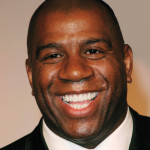Media Matters
In the article “The Trouble With AIDS in Mainstream Media” (June 2, 2014), Daryl Hannah raised the issue of the lack of mainstream media coverage on advances in HIV treatment, research and prevention.
The media and education systems, as well as government and nongovernment medical community associations, must get the message of proper HIV/AIDS history and factual up-to-date medical information across to everyone. The HIV community needs to reunite and stay compassionate for one another, since we all are in this fight together. HIV pills can only do so much. Mis-leading education is the cause of man-made stigma.
David
Although I agree that the mainstream media has neglected speaking about HIV, I don’t think the author and I would agree on the stories the mainstream media should be telling. Here in the South, we don’t talk about ending AIDS; we talk about the height of the infection epidemic. We don’t talk about people having access to PrEP and preventative meds; we talk about people just trying to get access to basic health care and HIV care in the first place.
Michael Bivens
Mainstream media needs to be normalizing coverage of HIV, reporting in the same manner as advances in cancer, diabetes, hypertension, etc. The local AIDS Walk should get the same treatment as the Komen run for breast cancer. The stories I would like to see in our media (POZ especially) are stories about people working to reduce and eventually end the stigma. I care about the research-type info as well, but there are many resources out there for the medical stuff. You are the only game in town for the people stories.
Ian Post-Green
Day of Remembrance
In his op-ed “A Day to Call Our Own” (May 22, 2014), Tez Anderson wrote about the launch of the National HIV/AIDS Long-Term Survivors Awareness Day on June 5 and his organization Let’s Kick ASS (AIDS Survivor Syndrome). Click here to read more about Anderson.
Thanks for sharing your story and for acknowledging others. I have similar thoughts and feelings and feel that I too suffer from PTSD [post-traumatic stress syndrome]. Kick ass!
Bill McMillan, Chicago
Tez, thank you for organizing Let’s Kick ASS. I am a female long-term survivor for 24 years and have experienced these same feelings of still being alive. My son who was born infected in ’93 is also having coping problems. Nevertheless, I managed to acquire my college degree and become a published author, and my son and I are always willing to do public speaking about living with HIV. We are healthy and undetectable—and yes, we still dream and search for happiness. Peace.
Stella, Phoenix
Your comments about PTSD are very interesting. As a person who has been living with AIDS for 29 years, I have also recently been going through severe depression and mood swings. Until I read your story, I thought I was the only person reacting to my situation in this manner. Thanks for sharing your story.
Rick, North Carolina
Thank you for posting this article. I am in year 24, and I have buried two husbands. I am not yet 50 years old, and people ask me how I have been widowed twice. I have felt tremendous guilt about why I am here and they are not. I am learning to just live and like it, but this is not an easy journey.
DWoods
I’ve been HIV positive for five years. There are people in my support group who are 20, 25 and 30 years positive. They are strong, caring, powerful movers for the cause. I admire and thank them for their leadership, guidance and continued work in the fight against HIV/AIDS. Let’s continue to strive for a cure and the continued education about this virus, and let’s put an end to stigma.
Sarah Y. Jackson, Baton Rouge, Louisiana
Foul Play
The article “Donald Sterling Claims Magic Johnson Not a ‘Good Example’” (May 13, 2014) addressed the racist comments made by the owner of the Los Angeles Clippers, and his subsequent remarks about Magic Johnson during his interview with Anderson Cooper.
I was in Los Angeles at the time of Donald Sterling’s ignorant and uninformed statements about Magic Johnson. I was heartened to see that some restaurants posted large announcements stating Sterling’s patronage was not welcome. Race relations still remain a very touchy issue in Los Angeles, and by adding HIV/AIDS to the mix, Sterling really stirred the pot. In light of his own heritage, he should certainly have much more compassion.
R. Mark Desjardins, Vancouver, British Columbia
I think that Sterling may be a racist; however, he did say something that I have been thinking. Magic has not done enough for the HIV community. There are many new infections in young males in the black and Hispanic communities that could benefit from a role model telling them to keep it zipped.
Bobby
Sterling’s comments show that HIV is still stigmatized by society. It only takes one sexual encounter to get HIV. And there are other ways of getting HIV. Sterling needs to be educated.
Shirl






Comments
Comments